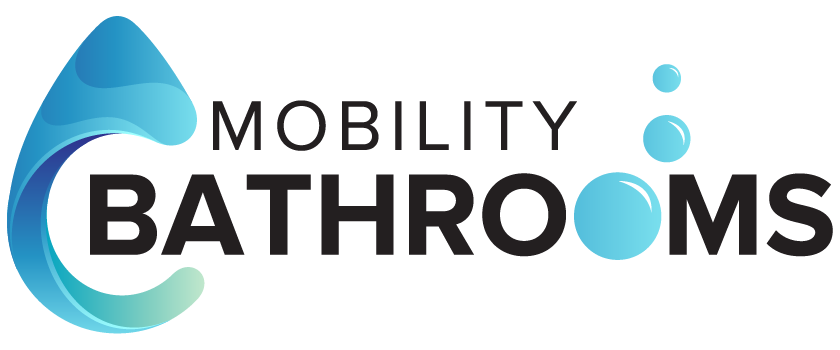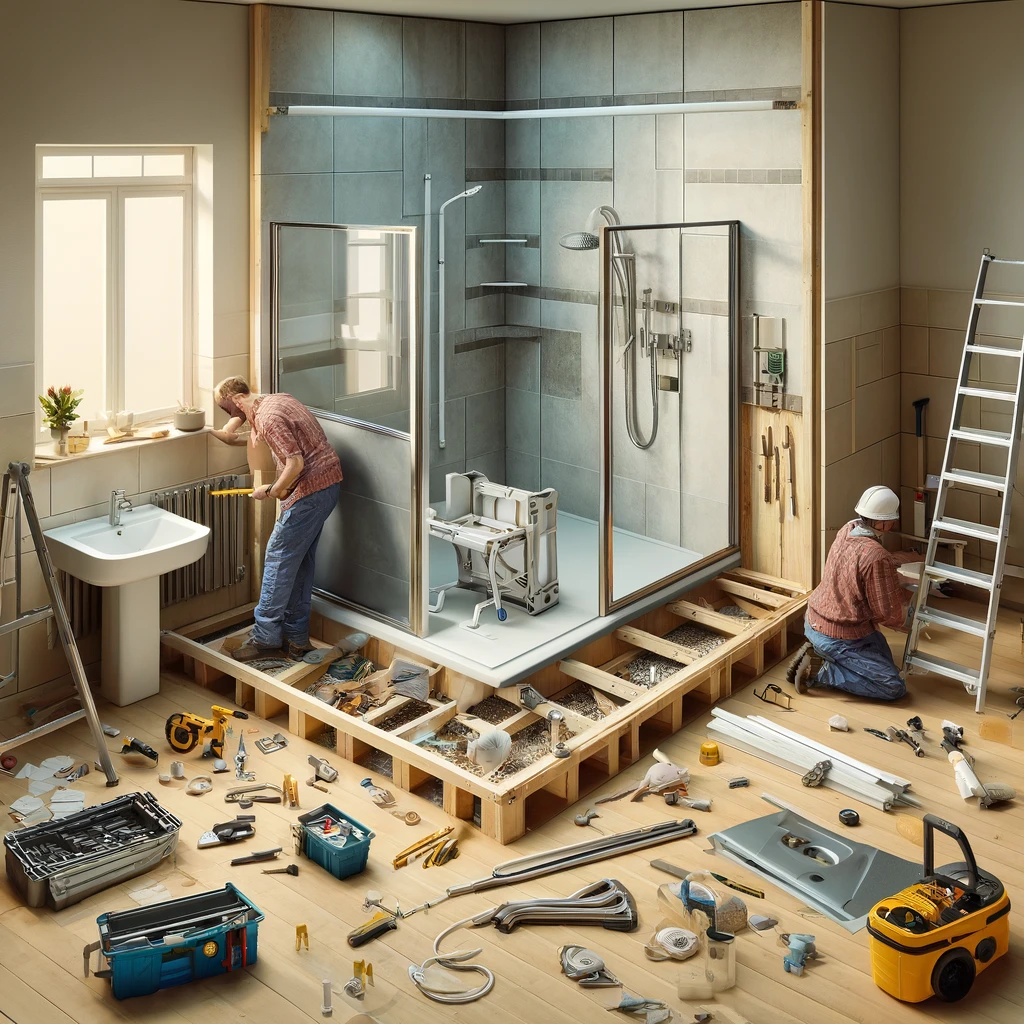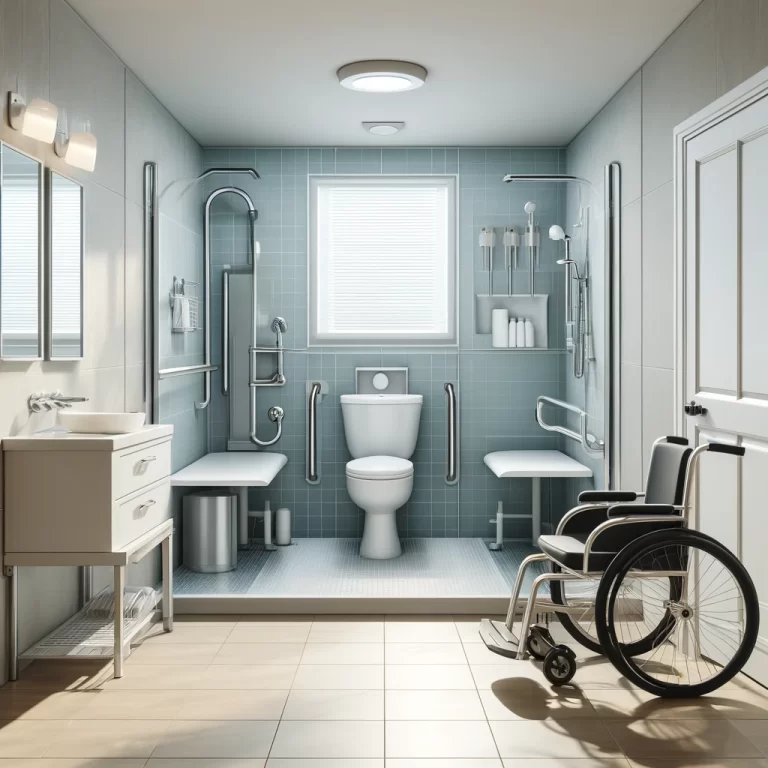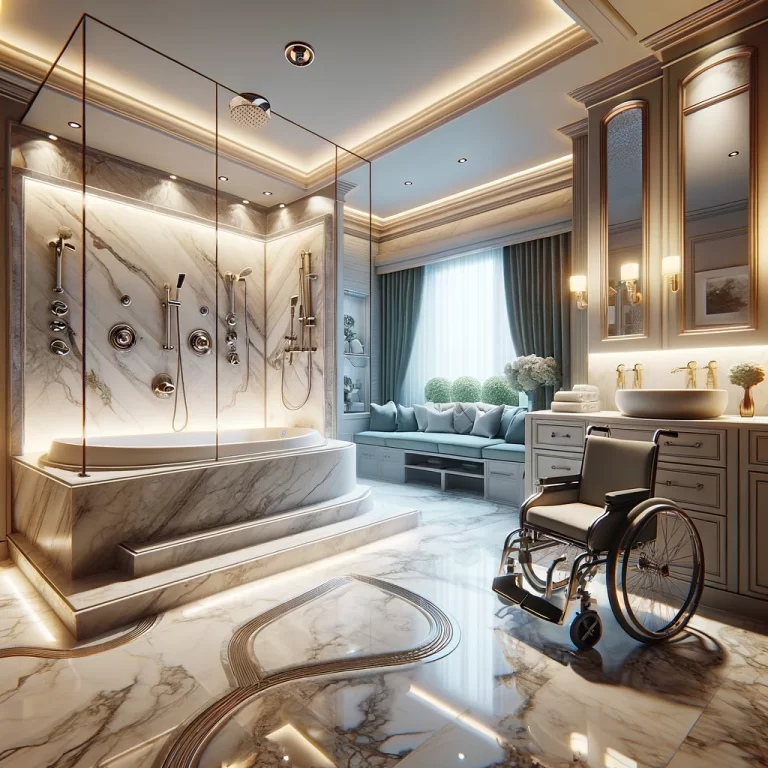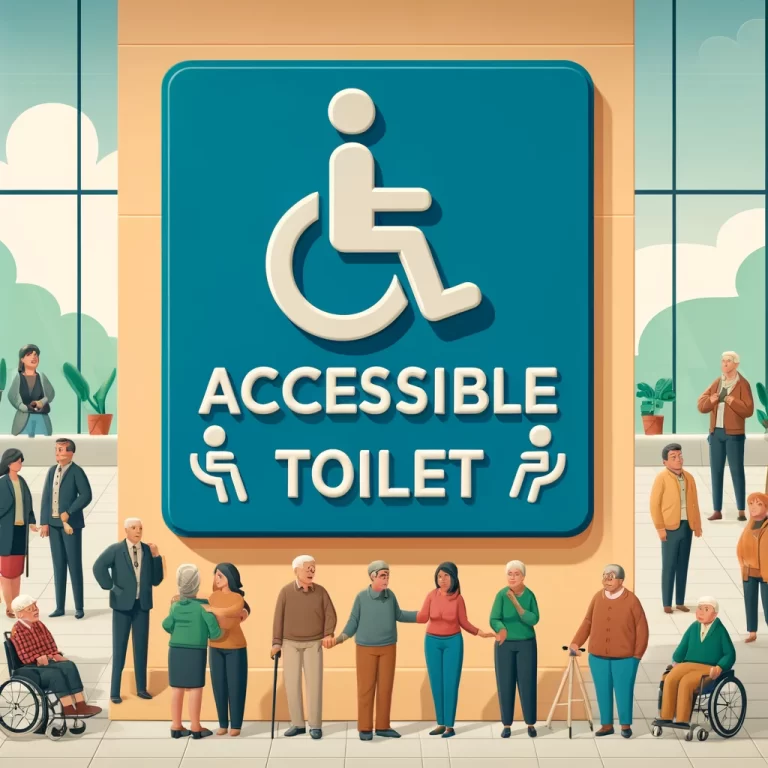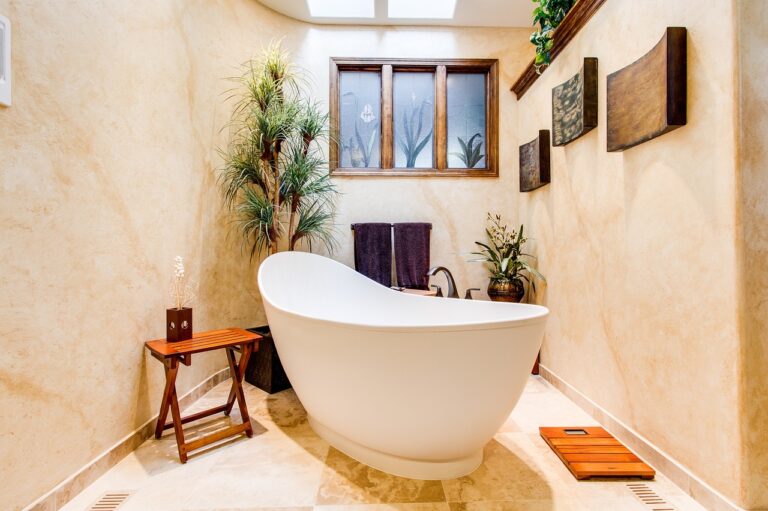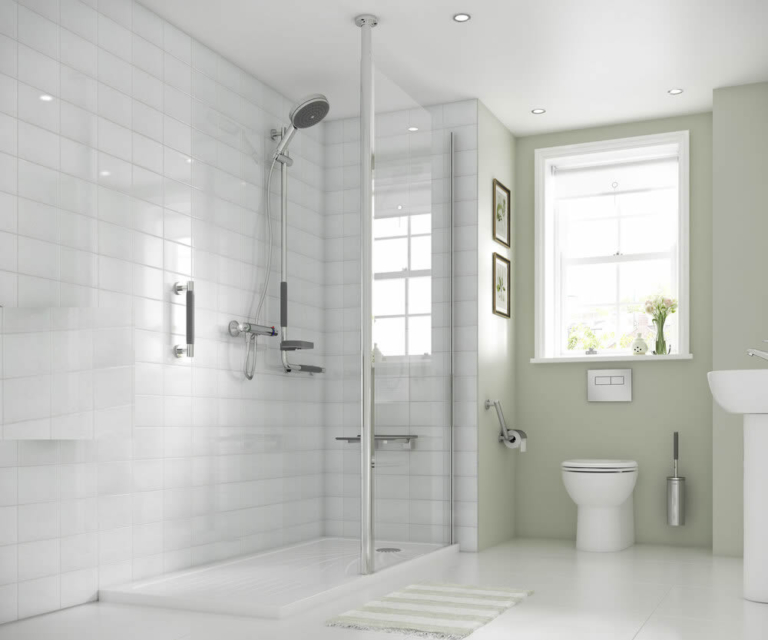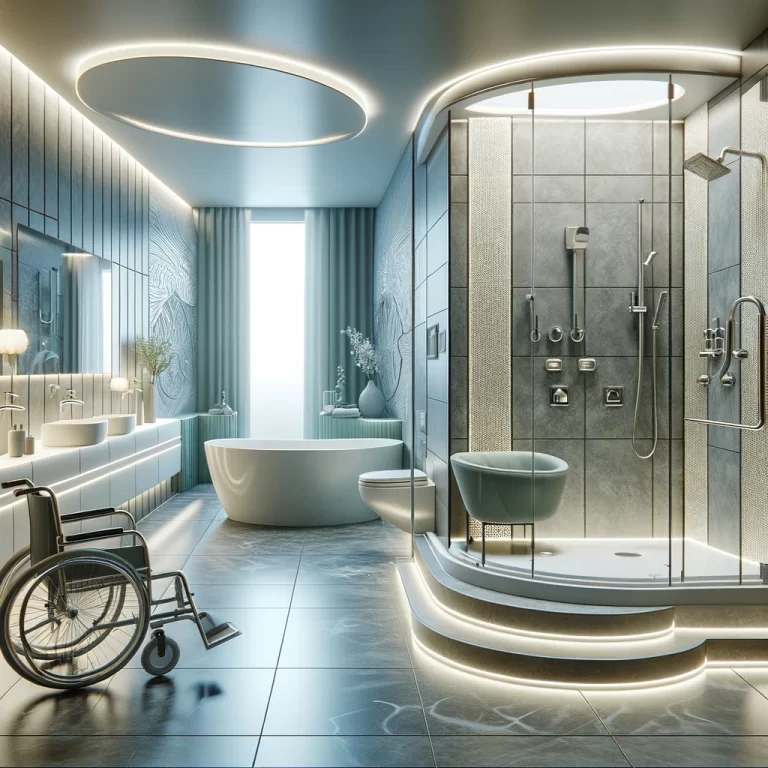What is the average price to install a bathroom UK
Considering a bathroom renovation but unsure about the costs involved? Factors such as size, type, materials, and labour can all affect the overall cost of bathroom installation.
In this article, we will break down the average cost of bathroom installation in the UK for basic, standard, and luxury bathrooms. We will provide tips on how to save on bathroom installation costs without compromising on quality.
Let’s explore the world of bathroom renovations and find out more!
Factors that Affect the Cost of Bathroom Installation
The cost of bathroom installation can vary significantly based on multiple factors, including the geographical location, time period, and the specific service provider.
For instance, in London, UK, where living costs are generally high, the expenses for bathroom installations tend to be on the pricier end, compared to regions with lower living expenses. The time frame is also a crucial aspect; prices might fluctuate over the years, with expected increases by 2024 due to inflation and market trends. Service providers play a key role in determining the final cost; reputable companies might charge more for their expertise and quality, while newer companies or platforms like MyBuilder may offer competitive pricing to attract customers.
Size of the Bathroom
The size of the bathroom plays a crucial role in determining the cost of installation, with larger bathrooms typically requiring a higher budget ranging from £75 to £140 for small bathrooms to £300 to £1,500 for larger ones.
Regarding small bathrooms, the limited space often means that the installation costs fall within the £75 to £140 range due to fewer materials and less labor required. Conversely, medium-sized bathrooms, which offer a bit more square footage to work with, may see installation costs averaging between £150 to £550, reflecting a moderate budget range. Large bathrooms, on the other hand, can have a wide cost spectrum, with budgets ranging from £300 to £1,500 or even more, as the size necessitates additional materials and labor for a comprehensive installation.
Type of Bathroom
Different types of bathrooms, such as ensuite, family, or guest bathrooms, come with varying installation costs, ranging from £200 to £400 for basic setups, £400 to £700 for standard installations, and around £300 to £350 for luxury options.
Ensuite bathrooms typically involve higher installation expenses due to their additional features and customisation requirements. The cost for an ensuite bathroom can fall in the range of £500 to £1,000 for a basic setup, £1,000 to £2,000 for a standard installation, and between £2,000 to £5,000 for a luxurious design.
On the other hand, family bathrooms, which accommodate the needs of multiple users, have installation costs that range from £300 to £600 for basic installations, £600 to £1,000 for standard setups, to approximately £1,000 to £2,000 for luxury upgrades.
Guest bathrooms, designed for occasional use, generally have lower installation expenses compared to ensuites and family bathrooms. The installation cost for a guest bathroom can vary from £200 to £400 for a basic setup, £400 to £700 for a standard installation, and around £300 to £350 for a more luxurious option.
Materials Used
The choice of materials significantly impacts the total bathroom installation cost, with expenses varying based on material quality, quantities needed, and specific features, ranging from £50/m² for basic materials to £100 – £600 for mid-range options and up to £7,200 – £9,800 for premium selections.
When opting for basic materials in a bathroom renovation, the costs remain relatively low, mainly due to the budget-friendly nature of these materials. In contrast, mid-range options offer a balance between cost and quality, providing durability and aesthetics at a moderate price point. Premium selections, on the other hand, come with luxurious finishes and advanced features but significantly escalate the overall expenses.
Labour Costs
Labour costs are a significant component of bathroom installation expenses, ranging from £200 to £300 for standard labour charges, £200 to £500 for specialised services, and around £400 for premium skilled workmanship.
When considering the impact of labour costs on the total budget, it’s crucial to understand how each category influences the overall expenses. Standard labour charges, typically falling between £200 to £300, consist of basic installation tasks such as plumbing and tiling. Specialised services, priced at £200 to £500, encompass more complex jobs like electrical work or bespoke carpentry.
It is the premium skilled workmanship, costing around £400, that truly elevates the overall bathroom installation. This level of expertise often involves intricate designs, high-end materials, and meticulous attention to detail, reflecting in the luxurious finish of the final space.
Additional Features
Incorporating additional features such as custom tiling, lighting fixtures, or smart technology can significantly elevate the cost of bathroom installation, with expenses varying from £300 for basic additions to £100 – £600 for moderate upgrades and around £200 to £300 for high-end features.
Custom tiling allows for a personalised touch, but it comes with a price tag, ranging from £500 to £2000 depending on the intricacy of the design.
Lighting enhancements introduce ambiance and functionality, adding costs starting from £100 for basic fixtures to £500 for high-quality LED setups.
Smart technology integrations, like motion-sensing taps or shower systems, are at the top end of the expense spectrum, requiring budgets between £500 and £1500.
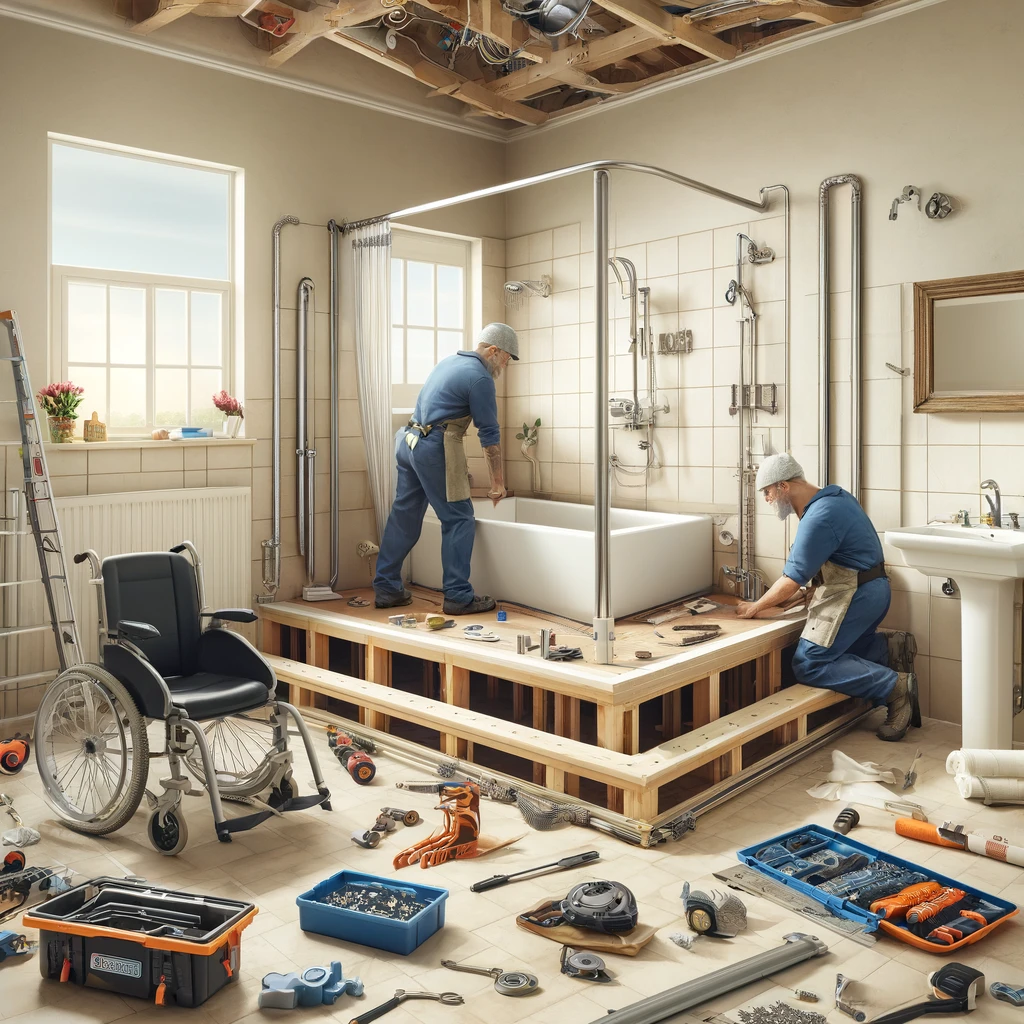
Average Cost of Bathroom Installation in the UK
Understanding the average cost of bathroom installation in the UK is essential for planning and budgeting your project effectively, considering regional variations, market trends, and service provider offerings.
Regarding bathroom installation expenses, the costs can vary significantly depending on a multitude of factors. Factors such as the location of your property, the size of the bathroom, and the quality of materials used all play a significant role in determining the final cost. The time frame in which you want the project completed can also affect the overall expenses. In bustling metropolitan areas like London, where property prices are generally higher, you can expect installation costs to be on the steeper side.
Industry trends and the availability of skilled professionals can impact the average costs. For instance, installing a bathroom in Morocco might be more cost-effective compared to London due to differences in labour costs and material prices. Looking ahead to 2022 and 2024, it’s crucial to consider the prevailing market conditions to make informed decisions about your bathroom installation project. Platforms like MyBuilder can be valuable resources for comparing quotes and finding reputable service providers to ensure a successful and budget-friendly installation experience.
Basic Bathroom Installation
Basic bathroom installations in the UK typically cost between £75 and £140 for smaller bathrooms, while larger ones may require budgets ranging from £300 to £1,500, depending on various cost factors such as materials, labour, and additional features.
Regarding material choices, opting for high-quality fixtures and fittings can significantly increase the overall cost of the project. For instance, marble countertops and designer taps will push the budget towards the higher end of the spectrum. Labour expenses also play a crucial role, especially if specialised tradespeople are needed for plumbing or tiling work. The inclusion of features like underfloor heating or bespoke cabinetry can add an extra layer of sophistication but will require a corresponding increase in budget allocation.
Standard Bathroom Installation
Standard bathroom installations in the UK fall within the price range of £200 to £400 for basic setups, £400 to £700 for standard configurations, and around £300 to £350 for more luxurious installations, reflecting the average costs associated with materials, labour, and additional features.
Regarding materials, the cost variations depend on whether you opt for budget-friendly options or high-end, premium choices. Choosing high-quality materials like tiles, fixtures, and fittings can significantly impact the final costs.
Labour services typically constitute a significant part of the expenses, with rates varying based on the complexity of the project and the experience of the professionals involved. Plus the essentials, extra features such as underfloor heating, special lighting, or bespoke designs can push the costs higher, especially for those aiming for a luxurious bathroom setup.
Luxury Bathroom Installation
Luxury bathroom installations in the UK encompass a price spectrum from £50m² for premium materials, £100 – £600 for high-quality fittings and accessories, to £7,200 – £9,800 for top-tier bespoke features, reflecting the extravagant costs involved in creating luxurious bathroom spaces.
When looking into the expenses associated with these upscale bathroom projects, it becomes evident that the high-end materials alone can significantly contribute to the overall cost. Materials such as Italian marble, custom-made designer tiles, and luxurious hardware drive up the expenses. The installation of high-quality fittings like rain showers, intelligent toilet systems, and luxury bathtubs adds a substantial amount to the budget. The inclusion of bespoke elements, such as custom-built cabinetry, statement lighting pieces, and advanced smart technologies further elevate the total expenditure.
How to Save on Bathroom Installation Costs
Implementing cost-saving strategies can help minimise bathroom installation expenses, whether in the UK or international markets like Italy and Morocco, considering factors like supplier discounts, DIY options, and efficient budget planning.
When looking to reduce the costs of bathroom installations, one effective approach is to capitalise on supplier discounts. Suppliers often offer deals on bulk purchases or seasonal promotions that can significantly lower the overall expenses. Exploring DIY alternatives for certain aspects of the installation can provide substantial savings. By taking on tasks like painting or simple tiling yourself, you can cut down on labor costs. Another crucial aspect is to adopt effective budgeting practices, which involve setting a clear budget, prioritising expenditure, and monitoring costs closely throughout the project.
Plan and Budget Carefully
Careful planning and budgeting are essential steps to control bathroom installation costs effectively, with considerations ranging from allocating approximately £300 for unforeseen expenses to setting aside £100 – £600 for contingencies and maintaining a budget range of around £200 to £300 for essential upgrades.
Having a well-thought-out plan for your bathroom renovation not only helps you stay organised but also saves you from unexpected financial burdens. By earmarking funds for unexpected costs and ensuring you have a contingency budget in place, you can navigate through the project with greater ease.
It’s advisable to set aside at least £300 for unforeseen expenses that may crop up during the renovation process. Allocating £100 to £600 for contingencies provides a safety net in case of any surprises or changes in the initial plan.
Maintaining a budget range of roughly £200 to £300 specifically for essential upgrades allows you to prioritise and enhance the key elements of your bathroom without overspending.
Shop Around for Materials and Labour
Exploring multiple suppliers and labor options can lead to cost savings in bathroom installations, with opportunities to negotiate deals, compare quotes ranging from £200 to £300 for standard materials and labor, £200 to £500 for specialised services, and around £400 for premium workmanship.
When embarking on a bathroom renovation project, it’s essential to delve into various sources for both materials and skilled labor. By widening your scope and considering a range of suppliers and workers, you open up avenues for potential savings. Comparing quotes can also play a crucial role in budget management, ensuring that you get the best value for your money. Engaging in negotiations with suppliers and service providers can further enhance your chances of getting competitive deals that align with your financial constraints, ultimately making your bathroom project more cost-effective.
Consider DIY Options
Engaging in do-it-yourself tasks can be a cost-effective approach to bathroom installations, offering potential savings on labour expenses and project management in the UK or international contexts like Italy and Morocco, leveraging platforms such as MyBuilder for support.
DIY bathroom installations not only provide financial benefits but also allow individuals to exercise more control over the entire process. By taking the reins of the project, one can ensure that their vision is executed precisely, incorporating personal preferences and customisations without additional costs.
For residents in bustling cities like London, choosing DIY solutions can be a practical choice given the high cost of professional services. This trend is not only prevalent in the UK but has gained traction globally, with homeowners in places like Italy and Morocco also opting for self-reliant approaches.
Prioritise Essential Features
Focusing on essential features and functionalities can aid in cost management for bathroom installations, directing expenditure towards critical aspects like materials costing around £50m², mid-range upgrades of £100 – £600, and premium elements priced at £7,200 – £9,800 for luxurious outcomes.
When deciding on material selections, opting for cost-effective yet durable options can offer long-term savings while maintaining quality.
Moderate upgrades such as taps, light fittings, and cabinetry can enhance the overall aesthetic without breaking the bank. It’s also crucial to balance these expenses with the inclusion of high-end features like rainfall showerheads, underfloor heating, or smart technology for added comfort and luxury.
By strategically prioritising these components based on your needs and budget, you can achieve a well-designed bathroom that combines functionality with style.
Conclusion
The factors influencing bathroom installation costs, the average expenses in the UK, and strategies to save on expenditure collectively contribute to a comprehensive understanding of managing financial outlays in bathroom renovation projects.
Considering the complexity of bathroom renovations, it is essential to account for variables such as the size of the space, materials used, labour costs, and any additional features desired. In the UK, the average expenditure on a bathroom installation can range from £4,500 to £6,000, with variations based on location and specific requirements. To save costs while maintaining quality, homeowners can explore options like DIY tasks, repurposing existing fixtures, comparing quotes from multiple contractors, and researching affordable yet durable materials.
Frequently Asked Questions
What is the average price to install a bathroom in the UK?
The average price to install a bathroom in the UK can vary depending on several factors such as the size of the bathroom, the materials used, and the location. Generally, the cost can range from £4,000 to £10,000.
What factors can affect the average price to install a bathroom in the UK?
As mentioned, the size of the bathroom, materials used, and location can affect the average price to install a bathroom in the UK. Other factors that may impact the cost include the complexity of the design, additional features such as a bathtub or shower, and the contractor’s labour fees.
Does the location in the UK affect the average price to install a bathroom?
Yes, the location can affect the cost of installing a bathroom in the UK. Cities and more affluent areas tend to have higher labour and material costs, thus increasing the overall price. On the other hand, rural areas may have lower costs due to the availability of cheaper materials and labour.
What does the average price to install a bathroom in the UK include?
The average price to install a bathroom in the UK typically includes the cost of materials, labour, and any necessary permits. However, it’s essential to clarify with your contractor what is included in the overall cost to avoid any surprise fees.
Are there any additional fees to consider when installing a bathroom in the UK?
Yes, there may be additional fees to consider when installing a bathroom in the UK, such as demolition and disposal fees, plumbing and electrical work, and the cost of fixtures and fittings. It’s best to discuss these potential fees with your contractor beforehand to get a more accurate estimate.
Can I save money by installing a bathroom in the UK myself?
While it may be tempting to save money by installing a bathroom yourself, it’s generally not recommended. Bathroom installation requires specialised skills and knowledge, and mistakes can end up costing you more in the long run. It’s best to hire a professional contractor to ensure the job is done correctly and efficiently.
